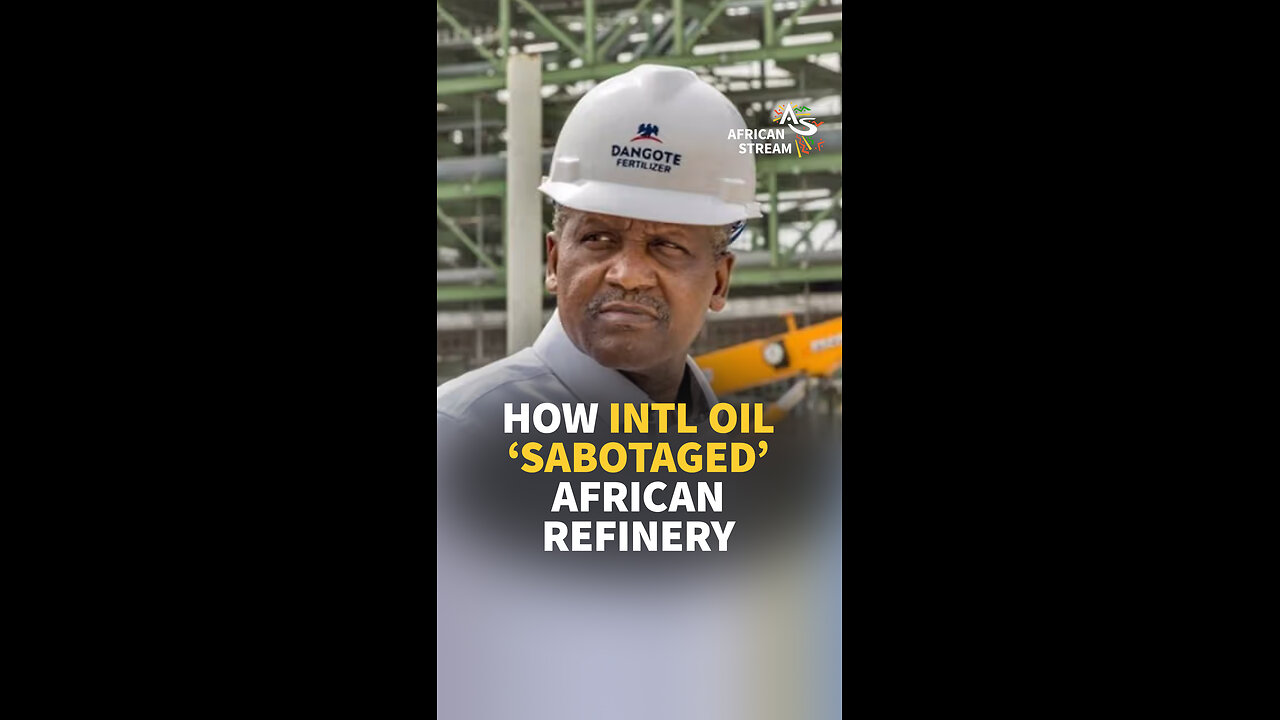Premium Only Content

HOW INTL OIL ‘SABOTAGED’ AFRICAN REFINERY
Neo-colonialism, as defined by Kwame Nkrumah, is the practice of using economic, political and cultural tools to control a country without direct military occupation. The effective sabotage in 2024 of Nigeria’s Dangote Refinery is a textbook example of neo-colonialism at play. It demonstrates how multinational corporations and foreign governments work together to maintain a system that benefits the West at Africa’s expense.
When Africa’s richest man, Aliko Dangote, announced his ambitious plan to build a $20-billion refinery in Nigeria, it sent shockwaves through the oil industry. Its goal is nothing short of revolutionary: to meet Nigeria’s domestic demand for refined petroleum products, eliminate the need for imports and even export to other African countries. But such a move was never going to be welcomed by those who benefit from the status quo. One of the most blatant acts of sabotage came from international oil companies, which essentially refused to sell Nigerian crude oil to the Dangote Refinery. Instead, they demanded a $6 premium above the market price, a move designed to make the refinery’s operations financially unviable. Forced to look elsewhere, the Dangote Refinery had to source crude oil from Brazil and the United States at higher costs, further straining its operations, even though the local market desperately needs petroleum products and the country wastes fortunes importing them.
The sabotage of the Dangote Refinery is a stark reminder that the fight for African independence is far from over. While the days of formal colonialism may be behind us, the structures of exploitation remain firmly in place.
The situation extends beyond oil. Africa’s vast reserves of minerals, timber, and agricultural products are similarly exported as raw materials, with the value-added processing taking place in Europe, North America, or China. Despite the interference, it’s hoped Dangote’s refinery will - eventually - boost pan-African integration and pave the way for a more self-reliant energy future across the continent.
-
 5:50:16
5:50:16
Pepkilla
18 hours agoRanked Warzone ~ Are we getting to platinum today or waaa
133K7 -
 9:15:09
9:15:09
BrancoFXDC
16 hours ago $9.67 earnedHAPPY NEW YEARS - Road to Platinum - Ranked Warzone
111K4 -
 5:53
5:53
SLS - Street League Skateboarding
5 days agoBraden Hoban’s San Diego Roots & Hometown Win | Kona Big Wave “Beyond The Ride” Part 2
115K14 -
 6:03:57
6:03:57
TheBedBug
20 hours ago🔴 LIVE: EPIC CROSSOVER - PATH OF EXILE 2 x MARVEL RIVALS
111K9 -
 1:12:45
1:12:45
The Quartering
18 hours agoTerror In New Orleans, Attacker Unmasked, Tesla BLOWS UP At Trump Tower! Are We Under Attack?
175K269 -
 1:32:08
1:32:08
Robert Gouveia
20 hours agoNew Year TERROR; Trump Speaks at Mar-a-Lago; Speaker Johnson FIGHT
143K122 -
 22:21
22:21
Russell Brand
1 day agoVaccines Don't Cause Autism*
215K952 -
 2:05:27
2:05:27
The Dilley Show
20 hours ago $27.76 earnedNew Years Agenda, New Orleans Terror Attack and More! w/Author Brenden Dilley 01/01/2025
124K41 -
 25:45
25:45
Outdoor Boys
3 days ago3 Days in Arctic Survival Shelter - Solo Bushcraft Camping & Blacksmithing
88.7K39 -
 2:59:05
2:59:05
Wendy Bell Radio
1 day agoAmerica Is Back
134K139